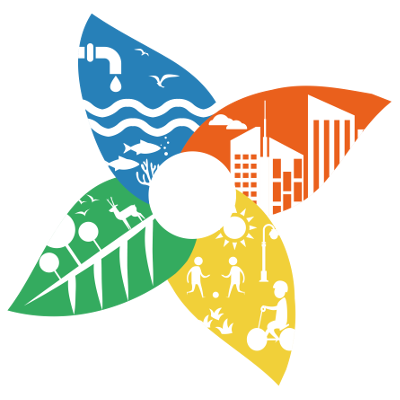At the upcoming “Nature-based Solutions: From Innovation to Common-use” conference (Tallinn, 24 to 26 October 2017), the question of how smart city technologies can be used to support and enhance nature-based solutions will be addressed by researchers, practitioners and policy-makers.
Ahead of the conference, I wanted to share a few brief reflection on how connections between smart city technologies and NBS are playing out in Newcastle. Particularly given visions of the smart city and the idea of a NBS seem to advocate two rather different drivers of urban development. The former, focusing on the power and potential of digital technologies to solve urban problems, and the later (by definition) on nature based solutions to these same urban problems.
Initial findings from our research in Newcastle, as part of the Naturvation project, highlights the key role the University of Newcastle is playing in connecting smart city solutions and NBS. In particular, through the development of the Urban Observatory, a smart city project based within the University which has secured funding to install sensors across the city.
Sensors are being installed in beehives within the city centre and beyond. Urban beekeepers are being provided innovative hive monitoring equipment, produced by Arnia, which they might otherwise been unaffordable. The monitoring data created can be used to inform decisions about how to best look after a hive of bees, and in doing so could reshape the long-established craft of beekeeping.
Urban Observatory sensors are also being installed to monitor the river Ouseburn which runs through parts of the city of Newcastle. There are hopes that these sensors will create a better understanding of the impacts of a sustainable drainage system being developed in the Ouseburn catchment. While the role of the Urban Observatory in this monitoring could lead to a novel and interesting shift in the governance of the river and surrounding environs.
Looking beyond the activities of the Urban Observatory, the Open Lab research group have been employing digital technologies including Twitter to support consultations on the plans for financing Newcastle’s parks. In doing so, forming an innovative partnership with Newcastle City Council and working to amplify the voices of citizens engaged in an ongoing debate around the future of the city’s parks.
These efforts to connect smart city technologies and NBS in Newcastle remain primarily driven by researchers, and are yet to move “From Innovation to Common-use”. Suggesting that the focus of the upcoming conference is timely, and that there is much more to understand about the promise and perils of bringing together smart technologies and nature in an effort to solve urban problems.
Chris Martin is a Research Associate at Durham University working on the NATURVATION project.
